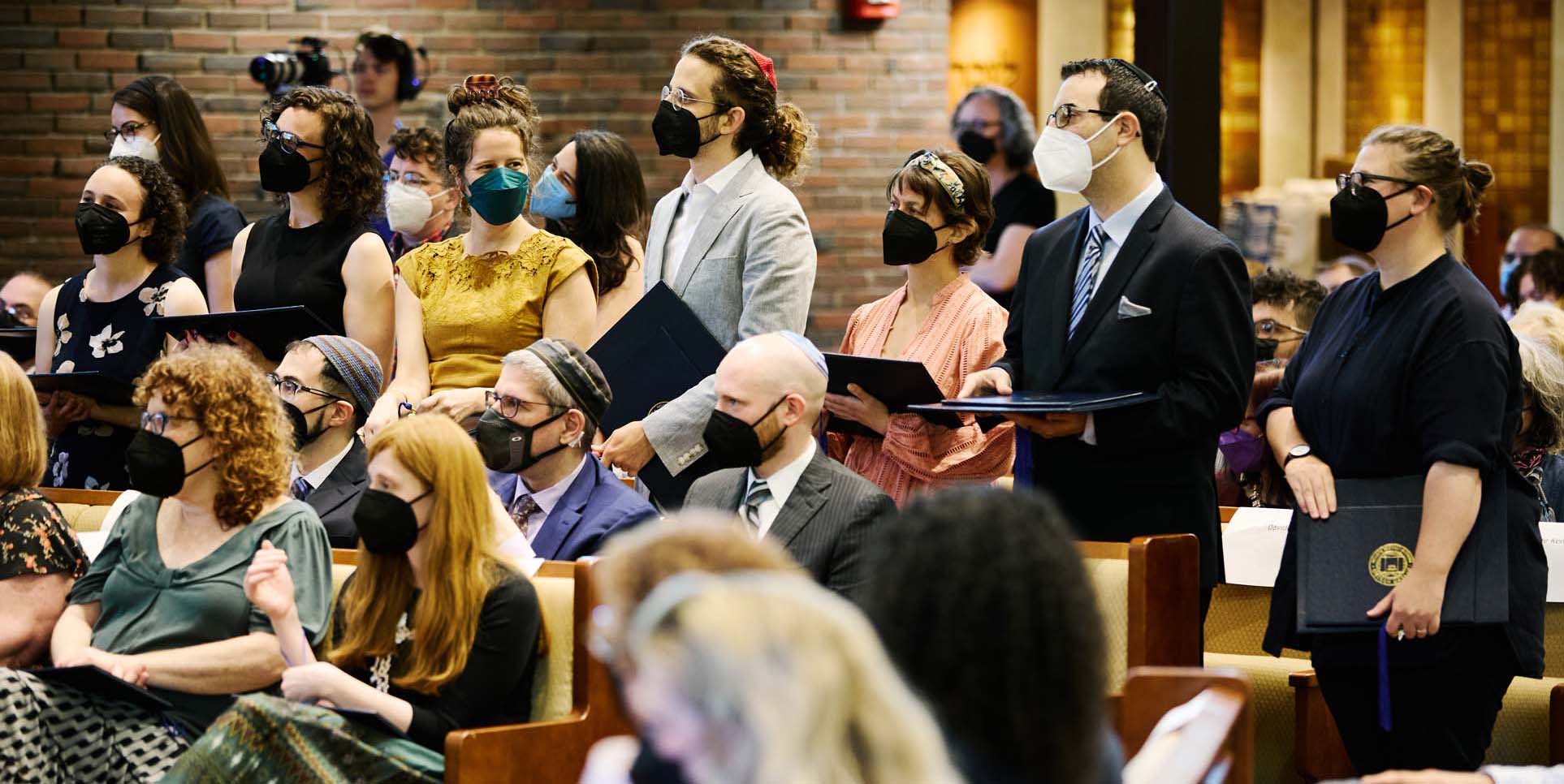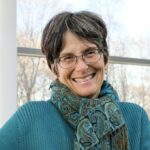News Highlights A Reservoir of Song

This Saturday night, as we stand once again at Sinai — a trembling people before a trembling mountain— we do so both as a community and as individuals.
A powerful midrash from Pesikta d’Rav Kahana offers the following image of the revelation at Sinai:
“The divine word spoke to each and every person according to their particular capacity, and do not wonder at this. For when manna came down for Israel, each and every person tasted it in keeping with their own capacity — infants, young people, old people— and if each and every person was enabled to taste the manna according to their own particular capacity, how much more and more was each and every person enabled according to their particular capacity to hear the divine word.”
The midrash invites us to imagine ourselves together and alone in a crowd at the foot of the mountain — all of us part of a covenantal community that is striving to live in relationship to the divine call, each of us hearing it in a way that is as intimate and untranslatable as the taste of manna on the tongue.
It’s an image that is both beautiful and a little heart-breaking. It demands tremendous humility — a true acceptance of my own partialness, of the limits of my own perspective. And yet, beyond humility, there is also the promise of something else. Pirke Avot teaches: Eyzeh hu ashir? Ha’sameach b’chelko. “Who is rich? The one who rejoices in his portion.”
The word for portion — in Hebrew and in English — has a dual connotation. Our portion refers to our particular destiny in life, the blessings and burdens that we have received. It is particular to us, and in this sense it is, by definition, partial. We are only part of a much larger picture. But once we embrace this perspective, humility gives birth to the joy of purpose and belonging. It is only when we learn to befriend our own partialness, that we can truly rejoice in being part of a whole that embraces and connects us all.
You have been amazing models of this kind of awareness in our community, in our Beit Midrash. In a time so many make the mistake of thinking that walking away from relationship with people who disagree with us is a show of courage. And that staying in relationship is a sign of cowardice or moral compromise — you have modeled the courage of sticking it out staying in conversation and in relationship even when you find yourselves, deeply challenged by someone else’s perspective. Our community, our Torah, has been deeper, more expansive, and more joyful because of you.
I want to invite us to extend this awareness beyond the boundaries of human conflict and community: into the realm of song, the song that all of creation is singing to the Holy One.
Last year, sometime in the heart of the second winter of the pandemic, I learned from my brother, Rabbi Stephen Cohen, about Perek Shira, an ancient Jewish text of unknown origin that sees all of creation singing and praying.
“Perek Shira asks about each creature, what does she sing?
What does the day sing?
What does the night sing?
What does the wind sing?
What does the ocean sing?
It turns out, that according to Perek Shira, each one of God’s creatures has a particular verse that it sings.
The sky sings “hashamayim m’saprim kvod el.” “The heavens declare the glory of God.”
And the ocean sings mikolot mayim rabbim, adirim mishberei yam. “Above the voice of many waters, the mighty breakers of the ocean…”
The sun sings, “Arise and shine for your light has come!”
The rooster sings, “How long will you sleep, lazy person! When will you arise from your sleep?”
When the cat catches a mouse it sings, “I have pursued my enemies and overtaken them!”
And the poor little mouse, according to Perek Shira sings, “I admit that I deserve this!”
The rivers, the mountains, the fig tree, the pomegranate, the palm tree, the olive tree, the dove, the vulture, the swallow, the crane . . . the fly, the grasshopper, the whale . . . each one of them sings to God a verse especially assigned to them from scripture, and the frog sings: Baruch shem kvod malchuto l’olam vaed. “Blessed is the glory of God’s kingdom forever and ever.”
The great Hebrew poet Haim Nachman Bialik wrote:
“Every day, consciously and unconsciously, human beings scatter heaps of words to the wind . . .”
When you find yourself lost among all of the words we scatter to the wind, when you find yourself a little too sure that you have all the answers, or when you find yourself feeling that you have absolutely no answers at all, nothing to contribute to the cacophony of human arrogance and strife, listen to the frogs . . . Listen to them singing. Baruch shem kvod malchuto l’olam vaed.
{Listen to the sounds of the frogs below]
Eyzeh hu ashir? Ha’sameach b’helko. May you find joy in remembering that you are part of a whole greater than we can even begin to fathom. Beyond all our arguments. Beyond all our words, is a reservoir of song. From time to time, may you remember to bow your knee – your berech — drink deeply from it and be replenished with bracha v’simcha.
With blessing and with joy.


